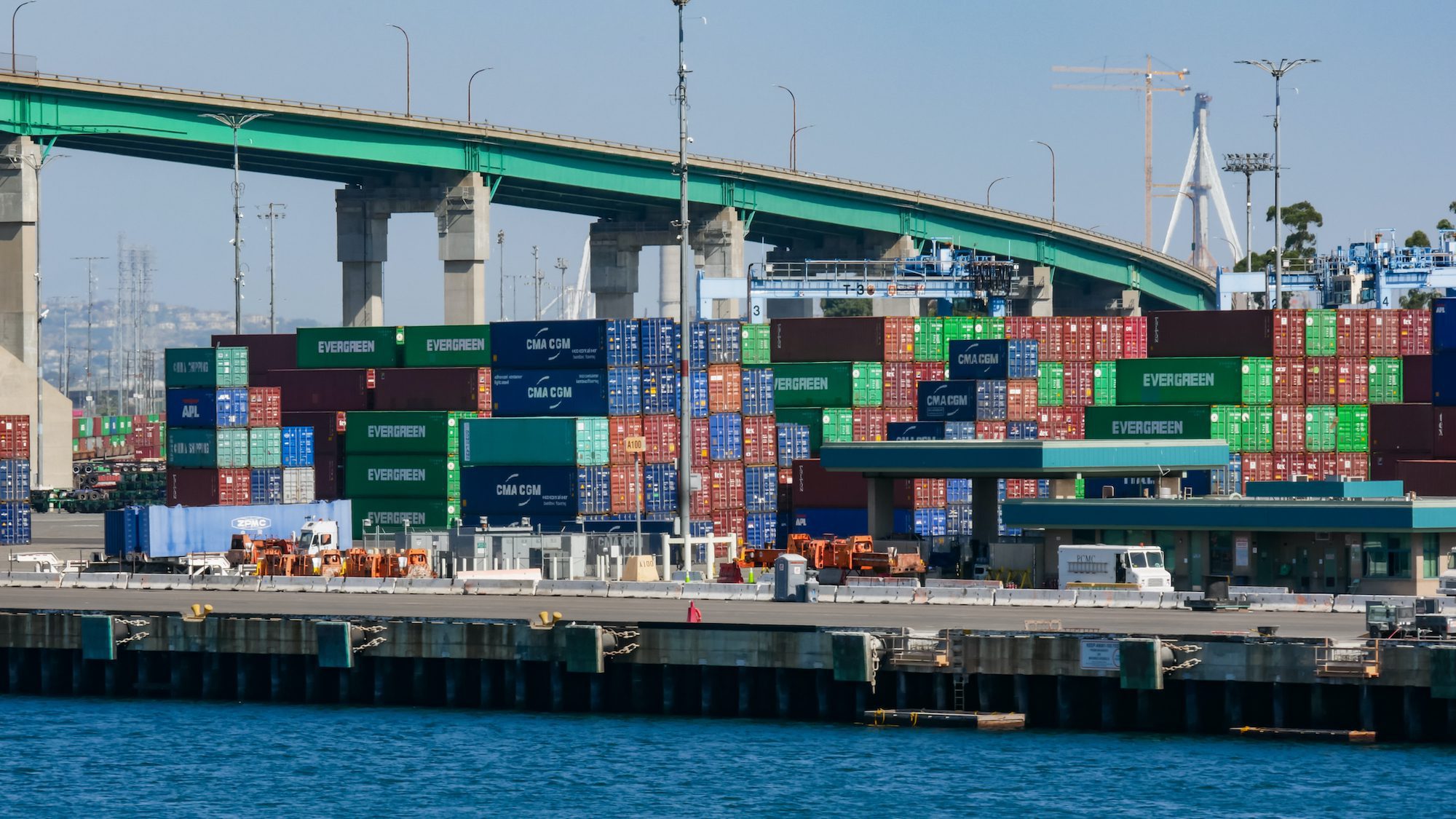The U.S. Federal Maritime Commission met during both open and closed session Thursday to be briefed on the Commission’s efforts to address ocean carriers’ detention and demurrage practices, improve supply chain data transparency, and an ongoing investigation of Canadian government ballast water regulations impacting U.S. flag Great Lakes shipping.
Lucille Marvin, the Commission’s Managing Director who is leading both the Vessel-Operating Common Carrier (VOCC) Audit Program and VOCC Audit Team, told Commissioners that detention and demurrage issues remain persistent within liner shipping, but direct engagement with ocean carriers is yielding progress in changing behavior and practices.
For example, after the VOCC Audit Team urged carriers to adopt industry-wide detention and demurrage best practices last year, several carriers have since restructured the information available on their websites, created streamlined dispute resolution processes, and developed more structured documentation regarding their detention and demurrage policies.
While commissioners expressed concern about data showing carrier revenues from detention and demurrage charges were up sharply over 2021, staff noted that the increase should be expected given record volumes of trade and congestion in the U.S. supply chain. Also, chassis shortages, insufficient warehouse space, and some shippers abandoning cargoes are contributing to the issuance of detention and demurrage charges.
“The vast increase in detention and demurrage charges being billed by the carriers is certainly concerning but must be seen in the context of the overall congestion situation at U.S. ports and inland networks,” said FMC Chairman Daniel B. Maffei. “Carriers are also waiving a much higher percentage of detention and demurrage charges and that’s one indication that the 2020 interpretive rule and enhanced enforcement is changing some practices and reducing collections of unreasonable detention and demurrage charges. However, the audit findings also tell me that we have a long way to go and must not let up one bit either on our enforcement efforts or the additional rulemaking on detention and demurrage recommended by Commissioner Rebecca Dye,” as the Face Finding Officer for Fact Finding 29, examining challenges facing the ocean transportation supply chain brought on by the COVID-19 pandemic.
During the closed session, Commission staff provided a brief on a draft Advance Notice of Proposed Rulemaking (ANPRM), which would comment on whether the Commission should require common carriers and marine terminal operators to include certain minimum information on, or with, demurrage and detention billings, as recommended by Commissioner Dye in July 2021.
Commissioner Carl W. Bentzel also provided an update about the Maritim Transportation Data Initiative(MTDI), examining how data and information sharing can help speed up the nation’s cargo delivery system. The initiative, led by Commissioner Bentzel, is expected to propose recommendations for common data standards used by the international shipping supply chain, as well as “access policies and protocols that would streamline information sharing across the ocean supply chain,” according to the Commission.
Topics addressed in the closed session also included the VOCC Audit Program, detention and demurrage, Area Representative activity updates, and updates to the ongoing investigation into the conditions created by Canadian Ballast Water Regulations.
The VOCC Audit Program, VOCC Audit Team, and the MTDI were all established last year at the direction of Chairman Maffei to address underlying issues contributing to domestic supply chain network congestion.
Sign up for our newsletter

 Join The Club
Join The Club











